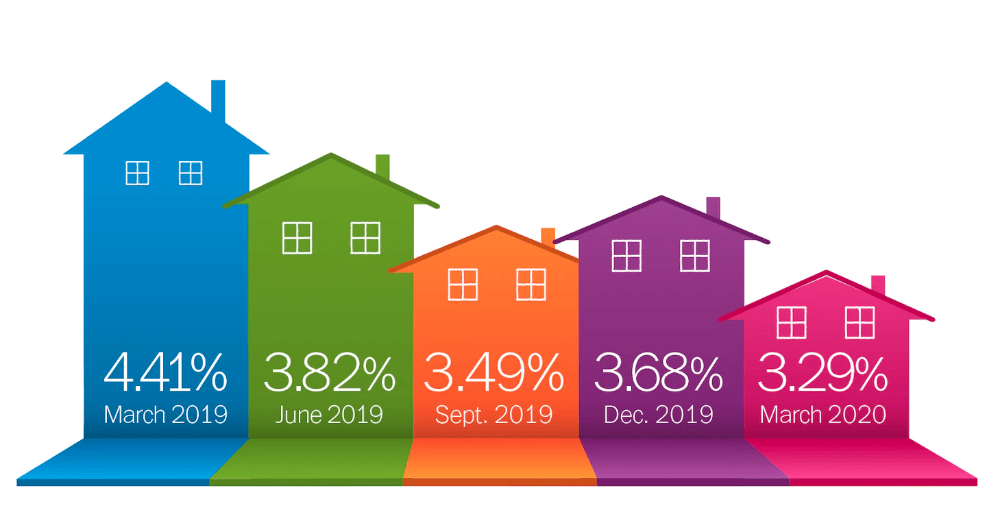So, can you Buy A House if you have student loan debt?
The common wisdom is bleak: student loans are preventing borrowers everywhere from living The American Dream Buy A House.
It doesn’t have to be that way, however.
Here are 6 ways to maximize your chance of buying your dream home — even if you have student loan debt.
Student Loan Debt Statistics
If you have student loan debt, you’re not alone. There are more than 44 million borrowers who collectively owe $1.5 trillion in student loan debt, according to personal finance site Make Lemonade. The same student loan debt statistics report also found that:
- Nearly 2.2 million student loan borrowers have a student loan balance of at least $100,000
- There is $31 billion of student loan debt that is 90 or more days overdue.
- There is nearly $850 billion of student loan debt outstanding for borrowers age 40 or younger
1. Focus on your credit score
FICO credit scores are among the most frequently used credit scores, and range from 350-800 (the higher, the better). A consumer with a credit score of 750 or higher is considered to have excellent credit, while a consumer with a credit score below 600 is considered to have poor credit.
To qualify for a mortgage and get a low mortgage rate, your credit score matters.
Each credit bureau collects information on your credit history and develops a credit score that lenders use to assess your riskiness as a borrower. If you find an error, you should report it to the credit bureau immediately so that it can be corrected.
2. Manage your debt-to-income ratio
Many lenders evaluate your debt-to-income ratio when making credit decisions, which could impact the interest rate you receive.
A debt-to-income ratio is your monthly debt payments as a percentage of your monthly income. Lenders focus on this ratio to determine whether you have enough excess cash to cover your living expenses plus your debt obligations.
Since a debt-to-income ratio has two components (debt and income), the best way to lower your debt-to-income ratio is to:
- repay the existing debt;
- earn more income; or
- do both
3. Pay attention to your payments
Simply put, lenders want to lend to financially responsible borrowers.
Your payment history is one of the largest components of your credit score. To ensure on-time payments, set up autopay for all your accounts so the funds are directly debited each month.
FICO scores are weighted more heavily by recent payments so your future matters more than your past.
In particular, make sure to:
- Pay off the balance if you have a delinquent payment
- Don’t skip any payments
- Make all payments on time
4. Get pre-approved for a mortgage
Too many people find their home and then get a Mortgage Preapproval.
Switch it.
Get pre-approved with a lender first. Then, you’ll know how much home you can afford.
To Get Pre Approved for a Home Loan, lenders will look at your income, assets, credit profile, and employment, among other documents.
Tips & Things Required To Get Pre-Approved For Your Mortgage Home Loan.
Learn the Secrets!5. Keep credit utilization low
Lenders also evaluate your credit card utilization, or your monthly credit card spending as a percentage of your credit limit.
Ideally, your credit utilization should be less than 30%. If you can keep it less than 10%, even better.
For example, if you have a $10,000 credit limit on your credit card and spent $3,000 this month, your credit utilization is 30%.
Here are some ways to manage your credit card utilization:
- set up automatic balance alerts to monitor credit utilization
- ask your lender to raise your credit limit (this may involve a hard credit pull so check with your lender first)
- pay off your balance multiple times a month to reduce your credit utilization
6. Look for down payment assistance
There are various types of down payment assistance, even if you have student loans.
Here are a few:
- FHA loans – federal loan through the Federal Housing Authority
- USDA loans – zero-down mortgages for rural and suburban homeowners
- VA loans – if military service
There are federal, state, and local assistance programs to buy a house as well so are on the lookout.





